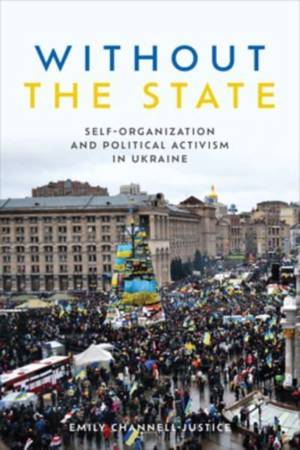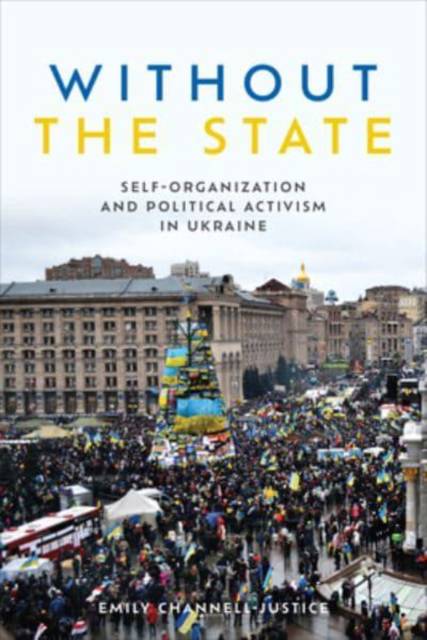
- Retrait gratuit dans votre magasin Club
- 7.000.000 titres dans notre catalogue
- Payer en toute sécurité
- Toujours un magasin près de chez vous
- Retrait gratuit dans votre magasin Club
- 7.000.0000 titres dans notre catalogue
- Payer en toute sécurité
- Toujours un magasin près de chez vous
Description
Without the State explores the 2013-14 Euromaidan protests - a wave of demonstrations and civil unrest in Ukraine - through in-depth ethnographic research with leftist, feminist, and student activists in Kyiv. The book discusses the concept of "self-organization" and the notion that if something needs to be done and a person has the competence to do it, then they should simply do it.
Emily Channell-Justice reveals how self-organization in Ukraine came out of leftist practices but actors from across the spectrum of political views also adopted self-organization over the course of Euromaidan, including far-right groups. The widespread adoption of self-organization encouraged Ukrainians to rethink their expectations of the relationship between citizens and their state. The book explains how self-organized practices have changed people's views on what they think they can contribute to their own communities, and in the wake of Russia's renewed invasion of Ukraine in 2022, it has also motivated new networks of mutual aid within Ukraine and beyond. Based on ethnographic fieldwork, including the author's first-hand experience of the entirety of the Euromaidan protests, Without the State provides a unique analytical account of this crucial moment in Ukraine's post-Soviet history.
Spécifications
Parties prenantes
- Auteur(s) :
- Editeur:
Contenu
- Nombre de pages :
- 302
- Langue:
- Anglais
- Collection :
Caractéristiques
- EAN:
- 9781487509736
- Date de parution :
- 07-12-22
- Format:
- Livre relié
- Format numérique:
- Genaaid
- Dimensions :
- 155 mm x 231 mm
- Poids :
- 430 g

Les avis
Nous publions uniquement les avis qui respectent les conditions requises. Consultez nos conditions pour les avis.






